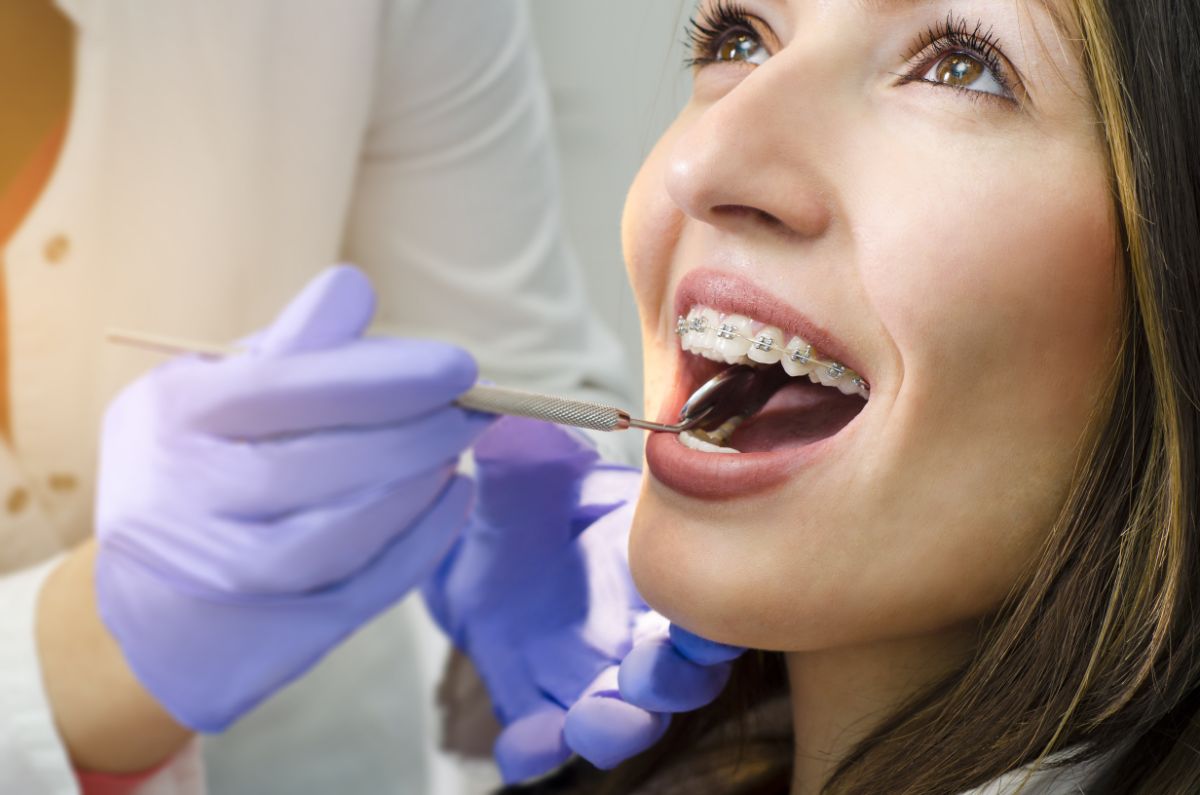As smile specialists, the team here at Moon Orthodontics tends to hand out a lot of advice on how to maintain a healthy mouth. We’ve gathered a lot of helpful tips over the years but one of the most important ones is this: find a solid oral hygiene routine and stick to it! This includes all the normal activities you’d expect, like brushing and flossing, but it also means identifying and correcting any bad habits that can be harmful to your teeth and gums.
Good oral health should be the goal for all of us, but it’s especially important for orthodontic patients to take good care of their smiles. Those who don’t put themselves at risk for a variety of dental issues. We’ve seen poor oral health increase a patient’s treatment time or even stall it until their problems can be corrected by a dentist. In some cases, their final results may be affected. This advice doesn’t just apply those in braces or clear aligners, however!
You don’t need to be an orthodontic patient to benefit from examining your dental hygiene from time to time. Recommendations sometimes change, and you could be missing out on ways to improve your smile. Even with regular dental visits and excellent oral care, you can damage the look and function of your teeth with certain bad habits. To learn more about these habits and why it’s important to break them, keep reading below!
Misinformation surrounding dental hygiene
Oral hygiene should ideally go beyond a quick brush and floss each day. Even something as simple as the type of toothbrush you use matters! Many people believe that firmer bristles are better at cleaning the teeth, but firm-bristled toothbrushes can actually irritate the gums. This may lead to sensitive teeth, especially for older adults. This is due to the gums receding as we age, exposing the roots of the teeth and increasing sensitivity. For extra comfort, we recommend gentle strokes with a soft-bristled toothbrush instead.
For the best brushing results, use fluoridated toothpaste at least twice a day for two minutes each time. You should also aim to floss every night before bed, which helps to remove food particles and plaque. This will reduce your chances of developing cavities and tooth decay. Don’t keep your toothbrush too long, either! Replace it every 3-4 months with a new one, or sooner if you’ve had a cold or any other illness. Antimicrobial and fluoride mouthwashes are another way to improve your oral health, as they eliminate the types of bacteria that cause bad breath and gum disease.
 Crunching ice and chewing on various objects
Crunching ice and chewing on various objects
Lots of us crunch on the leftover ice in our cups or gnaw on our nails when we’re bored or need distraction. This habit may seem harmless, but it still has the ability to damage the teeth. The freezing temps and tough texture of ice have the potential to fracture your teeth, and chewing on it can cause microscopic cracks in the surface of the enamel. This is true for popcorn kernels and fruit pits, too, along with anything else that puts undue stress on the teeth.
If you find yourself subconsciously chewing on your fingernails, pencils, or pen caps, be aware that it’s chipping away at your tooth enamel and may end up irritating the soft tissue inside the teeth. Try giving your mouth something else to do instead! Chewing sugarless gum can help, and snacking on something healthy that has a satisfying crunch can be a good option, too.
Grinding your teeth
Tooth grinding, also known as bruxism, is the involuntary grinding of the teeth outside of normal chewing, swallowing, or speaking movements. There are several possible causes for this, which can include:
- stress and anxiety
- medications
- certain medical conditions
- genetics
- misalignment between the teeth and jaws
- an abnormal bite
- missing or crooked teeth
If you grind your teeth, you may experience a variety of symptoms, such as interrupted sleep and chronic headaches, among others. Bruxism can also wear down the enamel of your teeth, which may eventually expose the much softer dentin inside. This can cause its own problems, including increased tooth sensitivity.
There are many ways to treat tooth grinding. Most of these treatments will help prevent any further issues while also treating any existing damage. They generally involve treating the obvious underlying causes, like reducing stress, treating anxiety, and addressing any dental or orthodontic issues. Proactive treatment may be recommended as well, such as wearing a mouthguard overnight.
Sometimes the simple realization that you’re grinding your teeth can help you tackle this bad habit! If you feel yourself clenching or grinding your teeth, try positioning the tip of your tongue between your teeth to train the jaw muscles to relax. Holding a warm washcloth against your cheek can often produce the same effect. It’s also a calming way to end the day before falling asleep!
 Beat your bad oral habits with help from Moon Orthodontics
Beat your bad oral habits with help from Moon Orthodontics
As a highly-trained and experienced orthodontist, Dr. Moon has the skills to diagnose a wide range of orthodontic issues. Identifying harmful oral habits is part of that process, too. You don’t need to be in braces or clear aligners to benefit from beating bad habits that can damage your smile, however!
If you’re in Olathe, Overland Park, or the surrounding communities, our team is happy to help you break free from a bad oral habit. Get in touch with us today to schedule a FREE consultation with Dr. Moon and take the first step towards a smile that’s stronger, healthier, and straighter!
 Free Consult
Free Consult

 Crunching ice and chewing on various objects
Crunching ice and chewing on various objects Beat your bad oral habits with help from Moon Orthodontics
Beat your bad oral habits with help from Moon Orthodontics